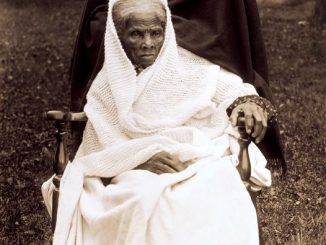
An orphan colt whose mother died shortly after giving birth has a new mom – a mare that had tragically lost her foal – thanks to the generosity of strangers and Washington State University veterinarians playing matchmaker.
Pairing an orphan foal and a nursing mare is a challenging task and one that commonly ends with failure. In this case, the connection was instantaneous.
“The mare had only been without a foal for about 24 hours,” Dr. Lisbeth Matthews, an equine medicine and surgery intern, said. “We walked her into the Veterinary Teaching Hospital and past him. He made a noise, and she went, ‘oh, there’s my foal,’ and started making noises back at him.”
It was a surprise to everyone how quickly the mare, named Shelly but affectionally called Mama by her owners, Roy and Faye Lions, accepted the colt. Equine veterinarian Jenifer Gold, who was helping to care for the foal and to supervise its introduction to the mare, said nursing mares frequently reject orphan foals, and when they don’t, the pairing process often takes days.
“She walked in and started nickering at him like it was her own baby – it was unbelievable,” Gold said. “I’ve been doing this for 20 years, and I have never seen it happen that way.”
The foal, which has been named Laredo, was admitted to the teaching hospital by his owner, Spokane resident Rachel Williams, just days after he was born when he started showing troubling digestive issues. Shortly after the colt arrived in Pullman, Faye Lions placed a call to WSU to see if the equine team was aware of any orphan colts needing a nursing mare.
“Our foal was dead, and nothing was going to bring it back, so we were hoping we could help someone else,” Faye Lions said. “It just so happened there was a foal there.”
A day later, the colt and Shelly were introduced.
“For them to be so willing to basically hand over their animal to a complete stranger after experiencing their own tragedy was pretty phenomenal,” Williams said. “I feel like in this scenario it was the worst of the worst for everybody, but there was a little bit of silver lining to the story.”
Williams is also grateful for the care and treatment she and her foal received at WSU.
“I just can’t even find words to say how great the veterinarians at WSU were,” she said. “They went above and beyond. I am just happy I ended up at WSU. I am so glad we were able to match those two up – it is kind of a miracle.”
Shelly will live with Williams until the colt is ready to be weaned, likely in six months, before she will return to her home in Kamiah, Idaho.
“It will be tough to say goodbye because you just naturally start to bond with animals, and she has kind of been my lifesaver,” Williams said. “It will be bittersweet for sure, but I am sure her owners will be happy to have her back.”
During the spring, the equine team at WSU typically sees at least a handful of orphan foals. Equine medicine specialist Dr. Macarena Sanz said orphan foals can be fed a powdered milk formula designed for horses, but those raised by humans typically develop behavioral issues that can become problematic as the animal matures.
“They turn out to be socially weird, have no understanding of personal space, and they are more difficult to train,” WSU equine veterinarian Macarena Sanz said. “The fact that this orphan foal has a mare is really going to make a difference.”
Sanz strongly encourages owners to immediately call their veterinarian if a foal is orphaned, as early care is critical to the animal’s survival.
Meu marido usou o dinheiro da minha herança para comprar um carro para a mãe dele no Natal — então eu lhe ensinei uma lição sobre traição

O sonho de Judy de abrir uma padaria em homenagem à sua falecida avó parece estar ao seu alcance até que seu marido Bryan faz uma jogada chocante. Usando a herança dela, ele compra para sua mãe um SUV de luxo de Natal. Com sua confiança abalada, Judy enfrenta uma escolha: aceitar a traição ou silenciosamente retomar o controle de sua vida.
Sempre acreditei que Bryan e eu éramos um time. Não éramos perfeitos, mas tínhamos um ritmo, uma cadência compartilhada. As noites trocando sonhos sobre o nosso futuro, as promessas sussurradas sob lençóis surrados. Tudo parecia genuíno.

Um casal conversando na cama | Fonte: Midjourney
“Seus sonhos são meus sonhos, querida”, ele disse uma vez, dedos escovando um cacho perdido atrás da minha orelha. “Nós sempre cresceremos juntos porque é isso que o casamento significa.”
Eu sorri tanto que doeu.
Então, quando minha avó faleceu, eu me agarrei àquela promessa. Perdê-la foi como perder minha bússola. Ela foi minha primeira professora na cozinha, guiando minhas mãos desajeitadas enquanto eu moldava a massa em rolinhos deformados.

Uma menina aprendendo a assar com uma mulher mais velha | Fonte: Pexels
Sua cozinha sempre cheirava a açúcar e aconchego, um lugar onde o amor não era apenas falado — ele era amassado em cada porção de massa.
Eu ficava em pé em um banquinho, dedos cobertos de farinha, enquanto a vovó contava histórias sobre sua infância, sua risada tão leve quanto o açúcar de confeiteiro no balcão. E quando um garoto partia meu coração, ou eu tinha problemas com meus pais, assar com a vovó de alguma forma tornava tudo melhor.
Cozinhar era como ela demonstrava amor, seja pelo tempo que passava comigo ou pelos bolos que fazíamos para presentear os outros. E talvez essa tenha sido a maior coisa que ela me ensinou: o valor de fazer algo com todo o seu coração.

Duas mulheres assando juntas | Fonte: Midjouney
Fiquei arrasada quando a vovó faleceu. Quando a advogada ligou para me contar sobre a herança, parecia que ela ainda estava me guiando, suas mãos nas minhas, moldando algo novo. Parecia um sinal.
“Vou abrir uma padaria”, disse a Bryan naquela noite, ainda um pouco sem fôlego com a ideia.
Seus olhos brilharam. “Sério?”

Um homem com um sorriso encantado | Fonte: Midjourney
“Sim. Sério. Para a vovó. Ela sempre disse que eu era boa o suficiente para fazer isso profissionalmente, e sempre recebo toneladas de comentários quando posto algo que fiz no Facebook. Abrir minha própria padaria parece um passo na direção certa.”
“Claro que sim, vamos lá”, ele disse, já abrindo seu laptop para procurar locais.
Por duas semanas, fomos imparáveis. Toda conversa era sobre fornos, arrendamentos e branding. Ficamos acordados até as 2 da manhã esboçando plantas baixas em guardanapos. Parecia que estávamos contra o mundo.

Um casal sentado junto em sua casa | Fonte: Midjourney
E talvez seja por isso que não pensei duas vezes antes de colocar a herança na nossa conta conjunta. Afinal, era o nosso sonho. Ele jogou mil dólares simbólicos, rindo como se fosse uma piada.
“Agora sou um investidor”, disse ele, estufando o peito.
Eu ri também. Mas não deveria ter rido.
A mudança foi tão lenta que quase perdi. Começou com sua mãe. Diane, autoproclamada matriarca do universo.

Uma mulher mais velha sorrindo em uma sala de estar | Fonte: Midjourney
Ela apareceu sem avisar pouco antes do dia 4 de julho, dizendo que havia sofrido um acidente e que seu carro velho havia sido “dado perda total”.
Bryan e eu ficamos chocados e preocupados, mas Diane estava apenas sendo dramática demais, como sempre. Ela tinha dirigido por uma estrada desconhecida, bateu em um buraco e danificou o eixo do carro. Não foi uma tragédia.
O pagamento do seguro foi o suficiente para comprar outro carro, mas ela não queria um usado. Não, não. Diane queria um novo.

Uma mulher com um olhar triste no rosto | Fonte: Midjourney
“Eu não mereço algo bom depois de tudo que sacrifiquei?” ela perguntou, com os olhos brilhando como se tivesse acabado de sobreviver a algo bíblico.
Bryan engoliu como se fosse verdade absoluta. Eu deveria ter percebido naquela época. Bryan sempre se dobrou para agradar Diane, mesmo quando não fazia sentido. Eu nunca pensei que ele chegaria ao ponto de me trair.
Diane choramingou sobre querer um carro novo por meses. Eu me desliguei depois de um tempo, então fiquei chocado quando nos sentamos na sala de estar de Diane no Natal para trocar presentes.

Presentes de Natal bem embrulhados | Fonte: Pexels
“É isso que eu estou pensando?” Diane engasgou enquanto tirava um molho de chaves do carro da caixa de presente que Bryan lhe dera.
Bryan sorriu. “Um SUV Lexus novinho, só para você, mãe.”
Diane começou a chorar e abraçou Bryan com tanta força que pensei que ele ficaria azul. Fiquei ali sentada, olhando, tentando entender como diabos ele conseguia comprar um carro daqueles para a mãe. Fiquei pensando nisso durante o jantar enquanto uma suspeita dolorosa crescia.

Uma mulher sentada em um sofá com os braços cruzados | Fonte: Midjourney
Mais tarde, eu o confrontei na cozinha enquanto ele arrumava a máquina de lavar louça.
“Bryan”, eu disse lentamente, minha voz tremendo. “Onde você conseguiu dinheiro para dar um presente tão caro para sua mãe?”
Ele olhou para cima como se não tivesse entendido a pergunta. “Eu tirei da nossa conta conjunta.”
Minha raiva transbordou. “Você quer dizer que pegou o dinheiro que herdei da minha avó e gastou para comprar um carro para sua mãe?”

Uma mulher chocada e irritada falando com alguém na cozinha | Fonte: Midjourney
Ele piscou, lento e estúpido. “Não é grande coisa, Judy. Ela precisava.”
Agarrei a borda do balcão com tanta força que meus dedos ficaram brancos. “Ela quase nunca dirige e poderia facilmente ter comprado um SUV de segunda mão por uma fração do preço!”
“Querida, não seja assim. A mamãe nos ajuda o tempo todo, então isso nos beneficia também. Além disso, ela merece algo legal depois de tudo que fez por nós.”
Eu vi tudo vermelho.

Uma mulher furiosa parada em uma cozinha | Fonte: Midjourney
“E o que eu mereço? Esse dinheiro é para minha padaria… você me prometeu…”
Bryan riu. Riu de verdade. “Nós vamos descobrir. É só dinheiro, Judy. A padaria vai ficar bem.”
Eu queria gritar, mas senti algo mais frio que raiva se instalar em meu peito. Era clareza. Clareza nítida e perfeita. Eu o vi como ele realmente era. Um tomador. Um usuário. Toda aquela conversa sobre sonhos compartilhados não significava nada para ele.

Uma mulher tristemente abaixando a cabeça | Fonte: Midjourney
Naquela noite, fiquei deitada na cama olhando para o teto, a respiração de Bryan suave e uniforme ao meu lado. Eu não chorei. Eu não lutei. Eu apenas decidi.
O mês seguinte foi a rebelião mais silenciosa da minha vida. Parei de falar. Não com ele, pelo menos. Minhas palavras foram para o banco, o advogado e o agente de empréstimos. Em todo horário de almoço, eu fazia ligações no meu carro, coletando cada migalha de independência que eu o deixava roubar.
O sonho da padaria não estava morto. Era apenas um objetivo pelo qual eu lutava sozinho agora.

Uma mulher lendo documentos | Fonte: Midjourney
Primeiro, abri uma nova conta bancária e movi meu salário para lá. Parei de deixá-lo ver meus planos. Não houve mais discussões sobre orçamento durante o jantar. O único que sabia era eu.
Eu assisti a cada movimento que ele fez, mas ele nunca viu o meu. Homens como Bryan nunca veem.
Em fevereiro, eu tinha um contrato de locação de uma pequena loja. Não era chique, mas tinha coração. A primeira coisa que pendurei lá dentro foi um dos aventais da vovó.
Eu nem convidei Bryan para a grande inauguração. Ele descobriu como o resto do mundo descobriu — navegando nas redes sociais.

Uma mulher encantada em pé do lado de fora de uma padaria | Fonte: Midjourney
Minha irmã postou uma foto minha na grande inauguração, tesoura na mão, meu sorriso tão grande que mal cabia no meu rosto. Havia flores por todo lugar, enviadas por amigos e antigos colegas de trabalho.
Pessoas que eu não via há anos vieram só para me apoiar. Elas provaram meus scones, e eu pude ver em seus rostos — o amor da vovó continuava vivo.
Eu ainda estava limpando migalhas perdidas quando a porta da frente se abriu. As botas de Bryan bateram no chão como tambores de guerra.

Close up das botas de um homem em um piso de ladrilho | Fonte: Midjourney
“Você agiu pelas minhas costas”, ele gritou, com a respiração curta e irregular.
Empilhei pratos na pia, calmo como uma manhã de domingo. “Você quer dizer que foi atrás do meu?” Eu o encarei completamente, limpando minhas mãos no avental. “Esta padaria é minha, Bryan. Você não tem direito a ela. Aproveite o carro. É a última coisa que você vai conseguir de mim.”
Seu rosto se amassou como papel velho. “Do que você está falando?”

Um homem confuso em uma padaria | Fonte: Midjourney
“Estou falando de consequências”, eu disse, caminhando em sua direção. “Você me usou. Estou farto.”
“Você não pode simplesmente ir embora”, ele rosnou. “Nós somos casados.”
Eu sorri como se tivesse um segredo. Porque eu tinha.
“Não por muito tempo”, eu disse a ele. “Os papéis já estão arquivados.”

Uma mulher assertiva em pé em uma padaria | Fonte: Midjourney
A primavera chegou, e com ela, a paz. Não o silêncio que você se força a acreditar, mas o tipo que cresce dentro de você.
Bryan lutou contra o divórcio como eu sabia que ele faria. Ele lutou com palavras, textos e mensagens de voz tarde da noite me implorando para reconsiderar. Mas eu já fui mole uma vez. Não mais.
Ele tentou fazer os pagamentos do Lexus de Diane, mas algo sobre sua energia de “eu pego isso” não durou. No verão, o caminhão de recuperação o levou da garagem de Diane enquanto ela gritava para o céu.

Uma mulher furiosa sacudindo o punho | Fonte: Midjourney
Eu assisti tudo acontecer de longe, tomando meu café gelado como se fosse um lugar na primeira fila da justiça.
Eu não estava amargurado. Não mais. Amargura é muito pesada para carregar. Eu não tinha espaço para ela.
A padaria prosperou. Os moradores locais voltavam toda semana, e eu sabia os pedidos deles de cor. Contratei dois funcionários de meio período. Nas manhãs calmas, eu me sentava perto da janela com uma xícara de chá, observando as pessoas passarem com minhas caixas nas mãos.

Uma mulher sorrindo perto da janela de uma padaria | Fonte: Midjourney
Certa vez, me peguei enxugando uma lágrima, mas não era de tristeza.
“Vovó”, sussurrei, sorrindo para o céu. “Olhe para mim agora.”
Quando Aaron apareceu parecendo um devaneio ambulante e terminou a noite com uma única rosa vermelha, pensei que tinha conhecido meu príncipe encantado. Mas quando ele me disse por que me deu a rosa, bloqueei seu número e fui embora para sempre.
Este trabalho é inspirado em eventos e pessoas reais, mas foi ficcionalizado para fins criativos. Nomes, personagens e detalhes foram alterados para proteger a privacidade e melhorar a narrativa. Qualquer semelhança com pessoas reais, vivas ou mortas, ou eventos reais é mera coincidência e não intencional do autor.
O autor e a editora não fazem nenhuma reivindicação quanto à precisão dos eventos ou à representação dos personagens e não são responsáveis por nenhuma interpretação errônea. Esta história é fornecida “como está”, e quaisquer opiniões expressas são as dos personagens e não refletem as opiniões do autor ou da editora.



Leave a Reply